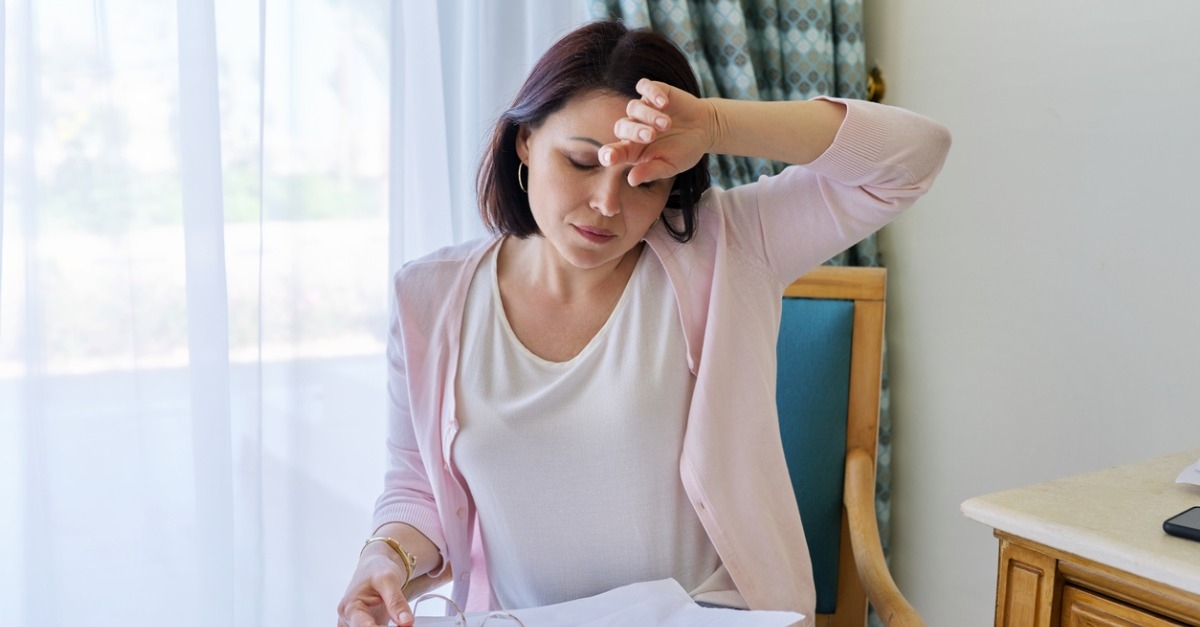Menopause: Symptoms and Treatment Options
Regardless of how old you are when it strikes, menopause is the time of life when you can no longer get pregnant, because your menstrual periods have permanently ceased.
Age, family history, and preexisting medical conditions all contribute to when menopause will begin — and end. “In the United States, the average age for menopause is 51 for non-smokers and 49 for smokers,” the Endocrine Society reports, “with a typical age range somewhere between 47 and 55 years. Some women experience menopause sooner — before age 45 is considered early menopause, and before age 40 is considered premature menopause.”
Though there’s no clear start date for menopause, and each individual is affected differently, here are some symptoms to be on the lookout for, and how to treat them.
Irregular Periods
“When it comes to your menstrual period, a variety of changes are possible,” explains Avant Gynecology expert, Dr. Lynley Durrett. “It could mean a change in timing — for instance it’s coming more or less often. Or it could mean a change in flow, including heavier or lighter amounts of blood than usual. There may even be bleeding or spotting between your periods.”
Irregularity in an otherwise dependable menstrual cycle could signal perimenopause, which is the start of your menopausal season. Tracking your period regularly, and keeping up annual gynecological appointments can help determine whether you are truly in menopause or not.
Shifting Moods
Mood changes including unexplained or exaggerated irritability, sadness or depression, malaise, aggression, hyper-elevated stress, and challenges with concentration can all be attributed to the normal hormone shifts that occur during menopause. This is particularly so if you have a previous history of depression or mental health issues.
If you’re noticing mood swings that veer sharply from your stable “norm,” your gynecologist can help identify whether menopausal hormone changes are the cause. Individual therapy or other stress relieving tactics may provide some stability.
Hot Flashes
Perhaps the calling card for menopause, these sudden, uncomfortable temperature changes in your body occur when estrogen levels drop, affecting the part of your brain responsible for appetite, sleep, sex drive, and body temperature: the hypothalamus. “When these estrogen levels lower during menopause,” Avant Gynecology expert, Dr. Lynley Durrett explains, “your internal thermostat goes a bit haywire, often registering as simply ‘too hot,’ for no clear reason.”
When they happen at night, these hot flashes are called night sweats, and can deeply impact the quality of your sleep.
Just like everything else during menopause, your hot flashes will be different from someone else’s. But there are several different solutions, including hormone therapy, dietary adjustments, or herbal treatments. Your gynecologist can help you narrow down the unique combination of measures that suits you best.
Dry Vagina
Though vaginal dryness can happen at any age for a variety of reasons, the drop in estrogen during menopause commonly decreases your natural vaginal moisture. This results in several possible symptoms, including:
- itching and burning
- decreased sex drive
- bleeding after sex
- frequent urinary tract infections
If this dryness impedes your sex life (or general comfort), your gynecologist can recommend a variety of remedies including lubricants, creams, or suppositories that can get you back in the saddle.
As you can see, menopause comes with its own “personality,” just like the rest of us. To get a full handle on your symptoms and the best relief, schedule an appointment with us online, or call (404) 352-2850. Our compassionate team is eager to provide award-winning, individualized support through every phase of your gynecological health.



